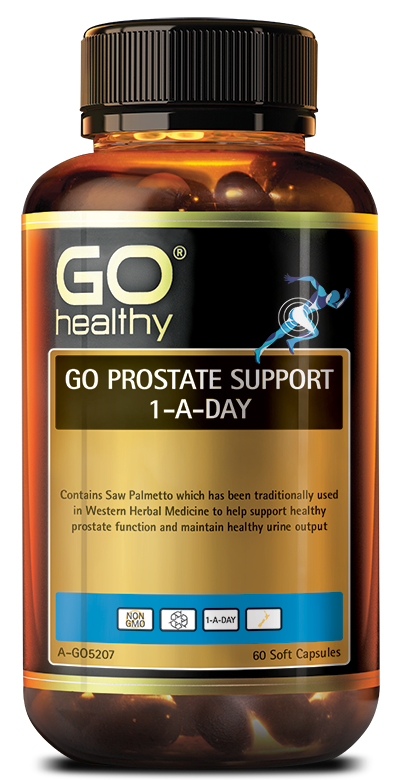 Introduction
Introduction In recent years, there has been a growing interest in the use of nutraceuticals as a way to promote health and wellness. These products, which are derived from food sources and are often thought to have medicinal benefits, have gained popularity for their potential to prevent and treat a wide range of health conditions. The term "nutraceutical" is a combination of the words "nutrition" and "pharmaceutical," and refers to products that are not only consumed as food but also have therapeutic properties.
In recent years, there has been a growing interest in the use of nutraceuticals as a way to promote health and wellness. These products, which are derived from food sources and are often thought to have medicinal benefits, have gained popularity for their potential to prevent and treat a wide range of health conditions. The term "nutraceutical" is a combination of the words "nutrition" and "pharmaceutical," and refers to products that are not only consumed as food but also have therapeutic properties.Nutraceuticals can take many forms, including dietary supplements, functional foods, and beverages. They may contain vitamins, minerals, herbs, amino acids, or other bioactive compounds that are believed to have health-promoting effects. While some nutraceuticals have been used for centuries in traditional medicine systems, others are relatively new to the market and have only recently gained attention from consumers and researchers alike.
In this article, we will provide an overview of nutraceuticals, including their sources, mechanisms of action, potential health benefits, and safety considerations. We will also discuss the current state of research in this field and Strict Supplement regulations offer recommendations for future studies. By exploring the potential of nutraceuticals as a way to support health and well-being, we hope to inspire further research and innovation in this exciting and rapidly growing field.
Sources of Nutraceuticals
Nutraceuticals can be found in a wide variety of foods and beverages, with some of the most common sources including fruits, vegetables, whole grains, nuts, and seeds. Many nutraceuticals are derived from plant-based sources, such as herbs and botanicals, which have long been used in traditional medicine systems around the world.
Some examples of popular nutraceuticals include turmeric, which contains the bioactive compound curcumin and is believed to have anti-inflammatory and antioxidant properties; green tea, which is rich in antioxidants called catechins and is thought to promote heart health and weight loss; and garlic, which contains allicin and other sulfur compounds that have antimicrobial and immune-boosting effects.
In addition to plant-based sources, nutraceuticals can also be derived from animal products, such as fish oil, which is rich in omega-3 fatty acids and is touted for its cardiovascular benefits; and collagen, which is found in bone broth and is thought to promote skin health and joint function.
Mechanisms of Action
Nutraceuticals exert their effects on the body through a variety of mechanisms, depending on their chemical composition and biological activity. Some nutraceuticals act as antioxidants, scavenging harmful free radicals and protecting cells from oxidative damage. Others may modulate inflammatory pathways, regulate blood sugar levels, or enhance immune function.
For example, curcumin, the bioactive compound in turmeric, has been shown to inhibit inflammatory cytokines, such as tumor necrosis factor-alpha (TNF-alpha), and may help reduce pain and swelling in conditions like arthritis. Green tea catechins have been found to increase fat oxidation and thermogenesis, leading to weight loss and improved metabolic health. Omega-3 fatty acids in fish oil can decrease triglyceride levels and reduce the risk of heart disease.
In addition to these direct effects on the body, nutraceuticals may also exert their benefits through interactions with the gut microbiota. Emerging research suggests that the gut microbiome plays a key role in health and disease, and that certain nutraceuticals may help promote a healthy balance of gut bacteria and improve gut barrier function.
Overall, the mechanisms of action of nutraceuticals are complex and multifaceted, and may involve a combination of factors that work synergistically to promote health and well-being.
Potential Health Benefits
Nutraceuticals have been studied for their potential to prevent and treat a wide range of health conditions, from chronic diseases like heart disease and diabetes to common ailments like colds and allergies. While many of these studies are still preliminary and more research is needed to confirm their efficacy, there is growing evidence to support the use of nutraceuticals as part of a healthy lifestyle.
Some of the potential health benefits of nutraceuticals include:
- Cardiovascular health: Several nutraceuticals, such as omega-3 fatty acids, plant sterols, and antioxidants, have been shown to reduce the risk of heart disease by lowering cholesterol levels, improving blood flow, and reducing inflammation.
- Immune support: Nutraceuticals like vitamin C, zinc, and echinacea may help boost the immune system and reduce the risk of infections, especially during cold and flu season.
- Cognitive function: Some nutraceuticals, such as omega-3 fatty acids and curcumin, have been studied for their potential to improve memory, mood, and cognitive function in conditions like Alzheimer's disease and depression.
- Weight management: Nutraceuticals like green tea catechins, conjugated linoleic acid (CLA), and chromium picolinate have been shown to promote weight loss and improve metabolic health by increasing fat oxidation, reducing appetite, and regulating blood sugar levels.
- Skin health: Collagen, hyaluronic acid, and antioxidants like vitamin E and resveratrol may help promote healthy skin by supporting collagen production, reducing wrinkles, and protecting against UV damage.
While these health benefits are promising, it is important to note that the effectiveness of nutraceuticals may vary depending on factors like dose, formulation, and individual response. It is also crucial to consult with a healthcare provider before starting any new supplement regimen, especially if you have a medical condition or are taking medications that may interact with nutraceuticals.
Safety Considerations
While nutraceuticals are generally considered safe for most people when taken as directed, there are some important safety considerations to keep in mind. Like all supplements, nutraceuticals are not regulated as strictly as pharmaceutical drugs and may vary in quality, purity, and potency. It is important to choose products from reputable brands that have been independently tested for safety and efficacy.
In addition, certain nutraceuticals may interact with medications or have side effects in some individuals. For example, garlic supplements may increase the risk of bleeding in people taking blood thinners, while high doses of vitamin E may increase the risk of bleeding in individuals with vitamin K deficiency. It is essential to consult with a healthcare provider before taking nutraceuticals, especially if you are pregnant, breastfeeding, or have a medical condition.
It is also important to be aware of potential allergic reactions to nutraceuticals, especially those derived from common allergens like nuts, shellfish, or soy. If you have a known allergy to these foods, it is best to avoid nutraceuticals that contain these ingredients and opt for alternatives that are safe for you.
Finally, it is crucial to follow the recommended dose and duration of use for nutraceuticals, as excessive intake may lead to toxicity or adverse effects. In some cases, megadoses of certain nutraceuticals may be harmful and should be avoided.
Current State of Research
The field of nutraceutical research is rapidly evolving, with new studies being published regularly that explore the potential health benefits of these products. While much of the research on nutraceuticals is still in the early stages, there is growing interest in their use as a way to support health and well-being.
Recent studies have focused on the role of nutraceuticals in preventing chronic diseases like cancer, diabetes, and cardiovascular disorders, as well as their effects on inflammatory pathways, gut health, and cognitive function. Some of the most promising findings include the potential of omega-3 fatty acids to reduce inflammation and improve cardiovascular health, the anti-inflammatory properties of curcumin in arthritis and other conditions, and the cognitive benefits of green tea catechins in Alzheimer's disease and mood disorders.
Despite these promising results, more research is needed to confirm the efficacy of nutraceuticals and understand their mechanisms of action. Randomized controlled trials, large-scale epidemiological studies, and mechanistic investigations are all essential for advancing the field of nutraceutical research and translating these findings into clinical practice.
Future Directions
As the field of nutraceutical research continues to expand, there are several key areas that warrant further investigation. These include:
- Personalized nutrition: Tailoring nutraceutical regimens to individual needs based on genetic, metabolic, and lifestyle factors may help optimize their effectiveness and minimize potential side effects.
- Combination therapies: Studying the synergistic effects of nutraceuticals in combination with conventional medications, lifestyle interventions, or other supplements may uncover new treatment strategies for complex diseases.
- Novel delivery systems: Exploring innovative ways to deliver nutraceuticals, such as nanoparticles, liposomes, or nanogels, may improve their bioavailability and enhance their therapeutic potential.
- Long-term studies: Conducting long-term clinical trials to evaluate the safety and efficacy of nutraceuticals over extended periods may provide valuable insights into their effects on health outcomes and disease progression.
By focusing on these areas of research, we can further our understanding of nutraceuticals and their potential to promote health and well-being. Ultimately, nutraceuticals have the potential to revolutionize the field of nutrition and offer a new paradigm for preventive and personalized medicine.
Conclusion
Nutraceuticals represent an exciting and rapidly growing field with the potential to revolutionize the way we approach health and wellness. These products, derived from food sources and often perceived to have medicinal benefits, have gained popularity for their ability to prevent and treat a wide range of health conditions. While the efficacy of nutraceuticals is still being explored, there is growing evidence to support their use as part of a healthy lifestyle.
In this article, we have provided an overview of nutraceuticals, including their sources, mechanisms of action, potential health benefits, and safety considerations. We have also discussed the current state of research in this field and offered recommendations for future studies.
By continuing to explore the potential of nutraceuticals as a way to support health and well-being, we can unlock new possibilities for preventive and personalized medicine. Through rigorous scientific investigation and innovative research strategies, we can harness the power of nutraceuticals to improve the lives of individuals and promote a healthier society for generations to come.







